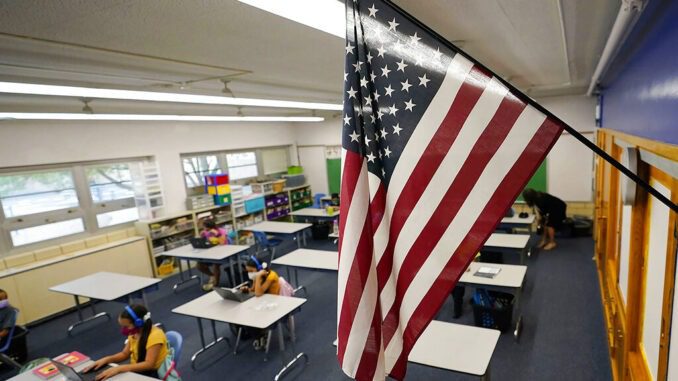
This week is National Charter Schools Week, and North Carolina’s public charter school movement stands at a crossroads.
There’s no internal question about where public charter schools should go from here — it’s full-steam ahead for us. After all, the population of public charter students tripled in the past decade while the population of school-age children increased by just 2.8 percent.
But we don’t decide our fate. That’s a political question because charter schools are public schools, subject to federal and state laws and regulations.
It’s political uncertainty that puts the public charter school movement at a crossroads: Will political leaders restrict access to public charter schools even as they reach peak popularity?
Last month, the Biden administration proposed restrictions on a federal charter school grant program that would do just that. The proposal would treat some public charter schools as mere overflow spaces, not complementary options for parents to evaluate and potentially choose for their children.
But the pushback has been swift — and bipartisan. Former U.S. Sen. Mary Landrieu, a Democrat, wrote that the new regulations “would disproportionately harm single-site charter schools and those that serve Black, Hispanic and Native students.” The left-leaning Washington Post editorial board called the move a “sneak attack” that would “sabotage a valuable program.” Recall, too, that charter expansion was a lynchpin of former President Obama’s administration.
This controversy underscores the political uncertainty now facing the public charter school movement.
In North Carolina, public charter school leaders simply wish to continue doing their jobs — to educate the children they serve and help them reach their full potential. Is that too much to ask?
Consider the facts. Public charter schools are part of the public-school family. They complement, rather than compete with, traditional public schools by offering innovative teaching methods and more flexible curriculum options. They’re free, public schools available to all.
Access to a quality education should be something that everybody can enjoy, not just the select few. Of course, restricting public charter schools would not impact more fortunate families who can pay to send their children to private school. But it would impact families with more limited means who can’t afford private school tuition.
Take a recent charter application as an example of the political headwinds the charter movement faces. Greenville Preparatory Academy seeks approval to open in Pitt County, where 74.4% of economically disadvantaged students in grades 4-8 are not proficient in reading. The proposed school’s board includes a university dean, a school psychologist, a community college professor, and a vice president at Goldman Sachs. The school expects to serve a majority-minority student population with 75% of students receiving free and reduced lunch. One other public charter school operates in the entire county.
Surprisingly, last month the State Board of Education voted not to approve this charter application after one board member, who declined to meet with the applicants, expressed private objections.
Such political uncertainty concerns me.
Fortunately, recent signals from state leaders fuel hope that public charter schools will maintain the bipartisan consensus they enjoyed for decades. This year, for the first time since he took office, Democratic Gov. Roy Cooper issued a proclamation honoring National School Choice Week. In a letter after the proclamation, Gov. Cooper’s office praised “innovation in our public schools and public charter schools.” Senate Leader Phil Berger and House Speaker Tim Moore, both Republicans, have consistently supported public charter schools in their mission to offer choice to families.
Public charter schools across the state are accomplishing wonderful things for their students. This year, the Sallie B. Howard School in Wilson, which serves a majority-minority student population, was named a National Blue Ribbon School, one of eight in North Carolina. Just last month, U.S. News and World Report included eight North Carolina charter schools in its list of the top 25 public high schools in the state.
This National Charter Schools Week, let’s embrace that success together.
Lindalyn Kakadelis is Executive Director at North Carolina Coalition for Charter Schools




